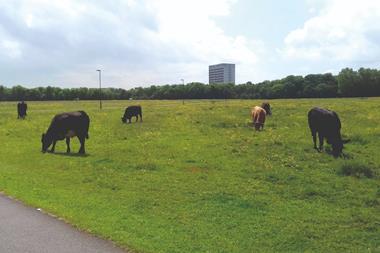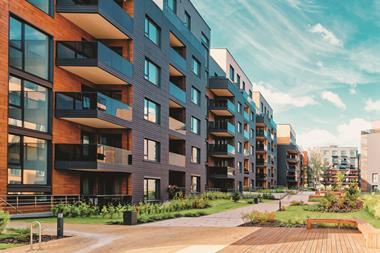Last month saw the return of Mipim after an absence of three years. During that time there were restrictions and lockdowns, and the restoration of an international conference for more than 20,000 delegates in the south of France felt about as realistic as attending a conference on Mars.

However, we, like thousands of others, returned to the Croisette in March and there we found fascinating panels, spontaneous meetings and valuable conversations.
While there are questions about whether Mipim is relevant in a post-pandemic world striving for greater sustainability, diversity, equality and inclusivity, there are many who suggested Covid would signal its death knell.
To be clear, Mipim does need to change to create a more inclusive and diverse conference. Great steps have already been taken, but there is still work to do to ensure it reflects where we as a sector want to be moving forwards, rather than harking back to the past. But ‘change’ is not synonymous with ‘end’.
No sooner had we entered lockdown than we were calling the ‘winners’ and ‘losers’, with offices and in-person retail assigned to the same scrap heap as Mipim. It seems today we are often driven towards kneejerk reactions that are decisively yes or no, in or out, on or off.
If you go back just over 20 years, you will find that similar claims were made about the end of tall buildings in the wake of 9/11. These extreme responses may be understandable on a human level as we try to make sense of inarguably era-defining events, but as investors it is crucial that we take a balanced and open-minded approach.
Mipim does need to change to create a more inclusive and diverse conference
To start, extreme responses rarely age well. Just look at one of the ‘winners’ of Covid, Peloton. Once a lockdown-proof stock, its share price has plummeted by 76% and an activist investor has unseated the chief executive. If you had ploughed everything into the pandemic winners and discarded the so-called losers, you would be in a pretty precarious position right now.
Returning to real estate, it is true that much has changed about how we use the office, shop and travel, but instead of adding nails to the coffin, a long-term view is needed to understand that change is not realised on the swing of a pendulum but on a timeline of evolution. This is already evident in the changes that office investors are making to create more flexible, tech-enabled and collaborative spaces that suit hybrid working.
As market leaders, our job is to be innovative and flexible enough to find opportunities in established markets such as student accommodation and logistics, as well as have enough confidence in our knowledge, experience and partners to take on a considered amount of risk to enter new areas. Simply flitting between flavour-of-the-month sectors will not serve your interests or generate the returns you are looking for in the way that a deep understanding and a balanced long-term view of the whole sector will.
To call the death of any sector on the basis of Covid or anything else is the tell-tale sign of an unseasoned investor. Life is thick with nuance and while there are undeniably ‘hot’ sectors and locations that are underpinned by wider structural trends, this is not Monopoly.
Richard Pilkington is senior MD and head of European real estate at Cain International






























No comments yet